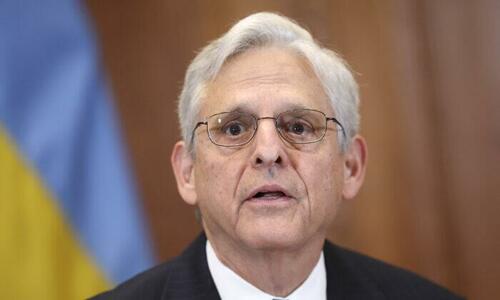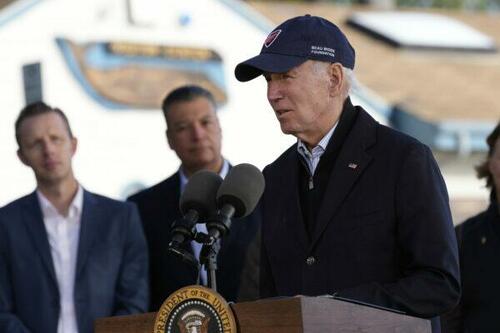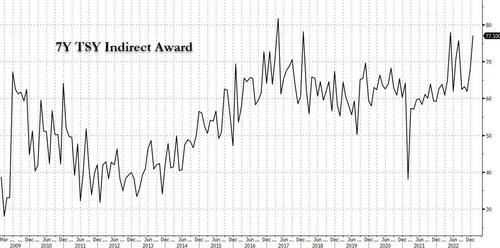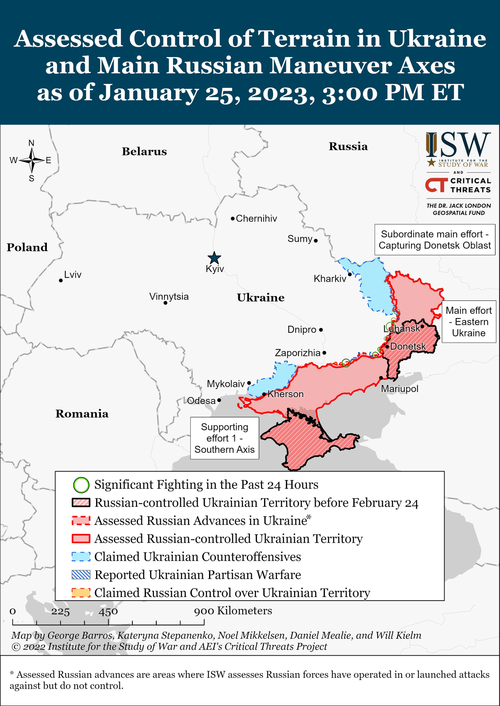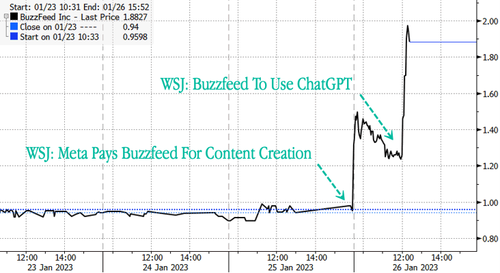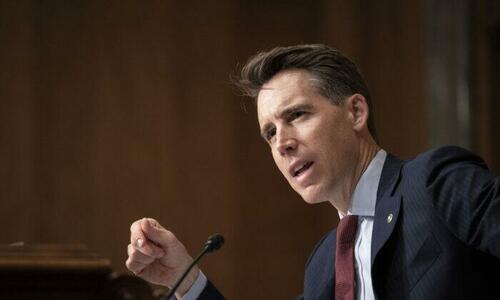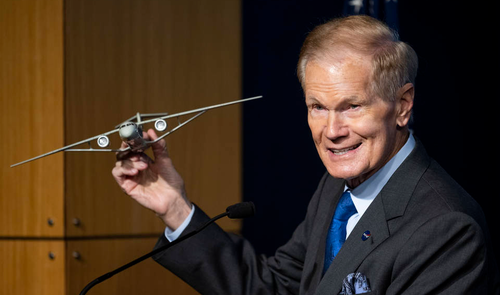For nearly three years, TikTok, the popular short-video social media app, has been under attack from the federal government. The United States, with the world’s strongest constitutional protections for free speech and longtime advocacy of a globally open and free internet, is seriously considering banning a service that 94 million Americans use.
An August 2020 move by the Trump administration to ban TikTok by executive order was shut down by the federal courts, and the Biden administration has set in motion a governmental evaluation of the risk of apps connected to foreign adversaries. By now, seeing TikTok as a national security risk has spread on all levels of government and across both parties. Brandan Carr, a Republican member of the Federal Communications Commission, has made banning TikTok his personal crusade. Ten GOP-led state legislatures have passed laws dictating which applications their employees can access in response to the alleged threat. In the final days of the 117th Congress, a bill banning TikTok on government devices passed the Senate unanimously. A bill to ban TikTok completely was introduced by two Senate Republicans—Marco Rubio (Fla.) and Mike Gallagher (Wisc.) and one Democrat—Raja Krishnamoorthi (Ill.)—on December 13. Just this week, Sen. Josh Hawley (R-Mo.) added another “ban TikTok” bill to the pile.
While its enemies paint it as nothing but a tool of the Chinese Communist Party (CCP), TikTok is a private, commercial business with multinational ownership. The app has attracted an enormous community outside of China who enjoy using it to watch and exchange videos, comments, and live sessions. That community exceeds 90 million in the United States alone. In 2022, TikTok became the third most popular internet service worldwide, generating healthy competition against the dominant platforms of Meta (Facebook, Instagram) and Alphabet (Google, YouTube).
The content on TikTok is produced by its users, American and worldwide, not by an enemy foreign government. Anti-communists and communists, woke progressives and religious conservatives are all present on TikTok. Shutting it down would silence the speech of 94 million U.S. users, none of whom are in China or Chinese citizens. What government agrees with this nation’s wannabe TikTok banners? China’s, where TikTok is banned precisely because it does not follow Chinese censorship restrictions.
The controversy over TikTok in the U.S. is part of a larger debate over strategic competition between the U.S. and China and has profound implications for freedom of expression and regulatory policy. This debate affects international trade in the digital economy and internet freedom. “National security” cannot be a trump card that can be invoked to do just anything—especially for a so-called threat to security as tenuous as TikTok’s functions and connection with the Chinese government.
What Is TikTok?
The facts about TikTok’s history and corporate organization do not support the theory that the app is a Trojan horse for hostile Chinese government schemes. TikTok is a product of ByteDance, a multinational firm incorporated in the Cayman Islands. ByteDance is a joint product of Chinese computer entrepreneurs, western capital, and a globalized internet. This fusion started in 2012, when the parent company ByteDance was founded in a Beijing apartment.
ByteDance was incorporated in the Cayman Islands because this was how Chinese tech entrepreneurs gained access to western capital while remaining nominally compliant with government restrictions on foreign investment. Today, ByteDance investors are global institutional funds and venture capital firms including its first big U.S investor Susquehanna International Group Ltd. (which bought a 15 percent stake for $5 million in 2012 that is now worth an estimated $15 billion), KKR, Sequoia Capital, Softbank, Morgan Stanley, Goldman Sachs Group, Weibo, and others.
ByteDance’s original apps for the Chinese market included Douyin, a short-form video-sharing platform in China. The key to its success was its A.I. application which feeds user behavior back into its recommendation engine. It generated a growth cycle attracting users’ time and attention and pulling in additional users. Usually this was monetized by means of advertising. If this sounds familiar, it is because that is exactly how big American social media platforms work.
TikTok launched in the U.S. in May 2017 although the A.I. engine and its engineers were based in China. The U.S. company TikTok Inc. is held by TikTok Ltd., a holding company in the Cayman Islands, itself a subsidiary of ByteDance Ltd., also legally based in the Caymans. TikTok Inc. is incorporated in California and Delaware and employs thousands of Americans.
The Chinese Government’s Role in TikTok
None of ByteDance’s services received early investment funds or subsidies from Beijing. On the contrary, China’s manufacturing-focused industrial policy starved digital platforms of capital, which is why so many of them engaged in “creative” organizational forms to raise capital from the West. In its early years, Chinese censors repeatedly disciplined Douyin because its algorithms recommended content that was popular with users but deemed “immoral” or not in support of “socialist values.”
Eventually, Douyin reached the size and profitability for the CCP to move in. On April 30, 2021, ByteDance’s Chinese subsidiary Douyin sold a 1 percent stake to Wang Tou Zhong Wen Technology, which is owned by three state entities. One of them is linked to the China Internet Investment Fund (CIIF), which is backed by the Cyberspace Administration of China (CAC), the nation’s central internet regulator.
In a letter to lawmakers in June 2022, the CEO of the U.S.-based TikTok Inc. confirmed that the transaction with the CAC-linked state-owned enterprise was necessary to obtain licenses for several China-based content applications. This bargain has been misrepresented as a “golden share” that gives Chinese censors control over TikTok. In fact, the stake gave CIIF a board seat on Douyin, the subsidiary that operates mainland China services. It did not give the CIIF a board seat on ByteDance Ltd. or TikTok Ltd., the global entities.
TikTok is a market-driven organization, not a political or military one. ByteDance wants to export A.I. to international markets. It can’t succeed in doing that if it is seen as an agent of a foreign power. The Chinese government also has every reason to favor continued segregation of the information services market in the way ByteDance/TikTok has structured it. China’s one-party state would have a difficult time handling exposure to unfiltered external media sources. China’s incentives are to stay in control of what it already controls—a huge domestic market with a restricted and subordinated digital economy.
Nonetheless, many in the U.S. government insist TikTok somehow exports Chinese censorship, or that its recommendation algorithm is manipulated by the CCP, or that it is or could become a powerful propaganda outlet for the Chinese state.
All three assertions can be empirically tested. All are false.
TikTok is not censored by the Chinese government. A 2021 technical examination of its software and control processes by the University of Toronto’s CitizenLab proved that the keyword blocks and censorship mechanisms included in ByteDance’s Douyin app, which is used in China, have been eliminated from the two versions of the software released outside of China.
Proof that censorship is not happening can be had by simply finding content on TikTok that would be banned by the CCP. The following topics would be tightly controlled if the app were subject to Chinese government control:
- Falun Gong, an anti-communist religious movement that is persecuted in China;
- Advocacy of the independence of Taiwan;
- Claims that the Uyghurs in Xinjiang province are being exploited or oppressed;
- Ridicule of Chinese leader Xi Jinping;
- Demonstrations calling for the ouster of Xi or the CCP;
- Support for Hong Kong independence and positive portrayals of pro-democracy protesters.
Videos in all of these categories can easily be found on TikTok. Many are popular and widely shared. The mix of views is not unlike what might be found on Twitter, Google, or Facebook.
A search for “Xinjiang” reveals a list of related search terms that by themselves are likely illegal on Chinese social media, including “xinjiang fire,” “xinjiang concentration camps,” and “xinjiang internment camps.” The top result was a video showing how a locked door enforcing the COVID lockdown led to deaths. Next in the list were videos of crackdowns on civilian protests against COVID lockdowns in Xinjiang in November; a video showing the faces of Muslims in China’s detention camps; a video exposing several hundred quickly-constructed square cabins to house Xinjiang detainees. Whoever or whatever controls these search results, it is not the CCP.
Is China Manipulating TikTok’s Algorithm?
The For You feed is widely seen as TikTok’s secret sauce. Its design and engineering come from ByteDance in Beijing, although TikTok and Douyin are separate, non-interoperable apps. When exported to the U.S., its short-video format and recommendation algorithm successfully predicts users’ interests, encouraging continued engagement and growth. This accounts for TikTok’s rapid commercial success against powerful entrenched competitors.
FBI Director Chris Wray purports to see in this successful algorithm a national security threat, not good old-fashioned free enterprise. China’s government, he asserts, could “control the recommendation algorithm, which could be used for influence operations.” Note that Wray does not assert that China’s government currently controls the recommendation algorithm—it doesn’t. No TikTok critics have provided any examples of this happening, and no TikTok users complain about it. Wray has no scientific basis for believing that a recommendation algorithm on one app can alter the political environment of an entire country.
Wray’s scenario is self-defeating. Retooling the algorithm to recommend the messages of the CCP in defiance of user preferences would undermine the very thing that makes TikTok popular. CCP propaganda is not what the vast majority of TikTok’s user base wants to see. Not many Americans get their endorphins from videos of Xi or militant images of Chinese nationalism.
Like all other platforms, TikTok does engage in content moderation, or restricting content considered harmful or unwanted by its users. Its recommendation algorithm can be tuned to limit the reach of certain kinds of content. In its early years (2017–2019), TikTok was not as transparent as other U.S. platforms about its moderation standards. Its policies reflected standards more appropriate to the suppressed Chinese environment. Submissions of any sort of political protest were often throttled in the name of a “happier,” less divisive atmosphere on the platform, something hostile media blamed on Chinese government control.
But TikTok abandoned that policy because the restrictions were unpopular with users. Now its categories of restricted posts are very similar to the standards enforced by Facebook, YouTube, or Twitter. This learning process occurred in response to commercial and normative pressures from outside China. There is no evidence that the Chinese government interfered with it.
Is TikTok a Chinese Propaganda Organ?
If TikTok is not subject to Chinese censorship and its recommendation algorithm is not controlled by the Chinese state, then is TikTok a vehicle for the distribution of Chinese propaganda? A Forbes article in August 2022 tried to make this case, arguing that some ByteDance employees had a background in state media and that “China could use TikTok’s broad cultural influence in the US for its own ends.”
This argument also fails to establish a serious national security threat. News and opinion distributed by Chinese propaganda organs are already available in the U.S. Google happily points anyone to the English language website of the People’s Daily, the official newspaper of the Central Committee of the Chinese Communist Party, which also has Twitter and Facebook accounts. Global Times, which is even more propagandistic than People’s Daily, is available on the web and has 1.8 million followers on Twitter. If this material is a threat on TikTok, why is it not also a threat on Twitter, Google, YouTube, and the open web?
Ironically, calls to ban TikTok as a form of propaganda lead inexorably to an American version of China’s Great Firewall: an internet in which the government censors foreign information sources. If nationalistic fears about Chinese influence operations cause a departure from American constitutional principles supporting free and open political discourse, we will have undermined our system of government more effectively than any Chinese propaganda could do.
Is TikTok a Cybersecurity Threat?
The strongest concerns about TikTok have been based on the claim that it can provide the Chinese government with data that poses a cybersecurity threat. The threat scenario rests on two key assumptions: 1) The data generated by TikTok provides China’s state with unique and valuable insights into systemic U.S. vulnerabilities; 2) China’s government can only get access to that data because TikTok’s parent company, ByteDance, is Chinese.
Like all social media, TikTok collects a lot of data about its users. Security researchers have criticized some of TikTok’s data collection practices, but these critiques pertain to individual privacy of users, not to national security threats, and most other social media platforms and mobile apps do the same things. Baptiste Robert, a French security researcher who studied the app, concluded that “TikTok’s behavior is not suspicious and it is not exfiltrating unusual data. Getting data about the user device is quite common in the mobile world and we would obtain similar results with Facebook, Snapchat, Instagram and others.”
We are not aware of any plausible scenario in which aggregate data from TikTok provides special insight into the control of critical infrastructure, military secrets, opportunities for corporate espionage, or knowledge of weapons systems—unless one thinks CIA agents are posting videos of their offices and colleagues on TikTok, or defense contractors are posting videos of employees dancing around prototypes of the latest weapons system.
If a U.S. military or intelligence official posts videos of a confidential military installation, or views or posts videos that would facilitate blackmailing that individual—that would be a national security issue. Those conditions do not apply to the overwhelming majority of TikTok users nor do they apply to most of the data.
Given the small number of individuals subject to this risk, it can be mitigated well short of a ban. Individuals in sensitive positions should be careful about what they upload or should not use TikTok at all. Importantly, the same risks apply to all social media, not just TikTok. TikTok, and the fact that its parent company is based in China, poses no unique threat.
TikTok’s critics allege that its status as a Chinese-owned subsidiary means China’s government can simply demand the app’s data and get all of it. TikTok has segregated its U.S. operations from the Chinese-based app and claims it would not turn over the data. TikTok’s incentives as a commercial enterprise are fully in line with this claim, as turning over this data would threaten its profitable business.
Relying on TikTok’s private incentives would not be advisable, however, if the aggregate data it gathers is truly unique, sensitive, and valuable. But there is no evidence that it is.
To put it bluntly, if China wants to spy on a social media user, it doesn’t need to be a part owner of TikTok to do so. If a user’s behavior and posts on TikTok expose confidential, valuable information related to national security, Chinese state intelligence could obtain that data simply by monitoring what is posted on TikTok (and LinkedIn, Facebook, Twitter, etc.). It could supplement this monitoring with an increasingly powerful array of open-source intelligence tools to correlate user activities and identities across multiple social media. Tools such as these can be used to monitor any social media application: LinkedIn, Facebook, Twitter, Reddit. Insofar as there is a threat of foreign intel agencies gaining access to social media data, it is not unique to TikTok and banning the app would not solve it.
The Dangers of a TikTok Ban
Banning TikTok would impose unfair harms on millions of innocent American users of the app, who have established equity in their creations and followers. It would expropriate investors and eliminate hundreds of U.S. jobs. Competition in the industry would be weakened.
Advertisers and event promoters would also suffer direct economic harm, as their plans or contracts to promote events or products using the app would be disrupted. A ban on an established app is both an interference with users’ free expression rights and a costly economic intervention that would affect nearly 100 million Americans.
It would also risk retaliation against American businesses by China, and provide fuel for hitting U.S. firms with techno-nationalist and data protectionist policies in other countries. The U.S. economy would be the main loser if that happens. If foreign apps are considered inherently threatening, this is bad news for Apple, Google, Microsoft, Amazon, Facebook, and virtually all American software companies, which do substantial business in foreign countries. It is unrealistic for Americans to think that they can act unilaterally against a Chinese company without China’s government returning the favor in some way—Apple, which actually does control devices and not just app data, might especially be in the crosshairs if an international tech-banning war begins.
Foreign companies entering U.S. markets have been an important source of new competition since the 1970s and ’80s. Foreign capital has funded startup competitors and new technologies. In some cases, foreign firms entered concentrated or oligopolistic U.S. markets, like the automobile industry, to enliven competition and innovation. The competition from TikTok was so strong that Facebook hired a lobbying firm to orchestrate a nationwide campaign against it. One can only speculate about how much of the so-called national security case against TikTok is really motivated by companies seeking protection from competition.
The unstated policy question behind the TikTok controversy is whether global markets can be integrated and function cooperatively even if their political systems are adversarial. Our answer is yes, they can and should be. Coexistence and trade is the only way forward. TikTok in its current form is an example of beneficial economic coexistence between the U.S. and China. It shows Chinese talent and capital escaping China’s CCP by expanding to foreign markets and playing by international rules. It is a case of Americans profiting from investments in the Chinese market, and of Chinese companies offering innovative products and creating thousands of U.S. jobs.
The post TikTok Is Not a National Security Threat appeared first on Reason.com.
from Latest https://ift.tt/wsvWlrx
via IFTTT
